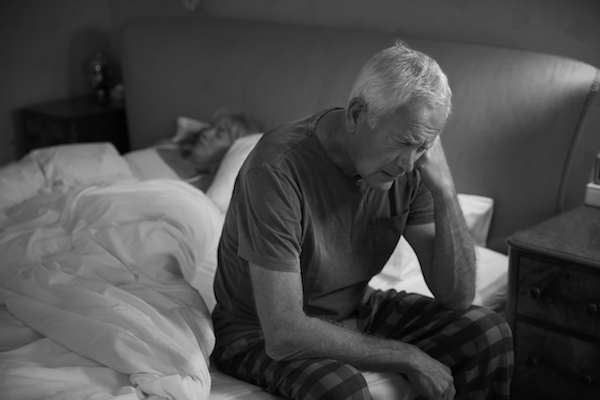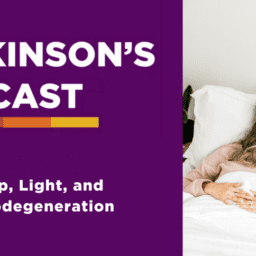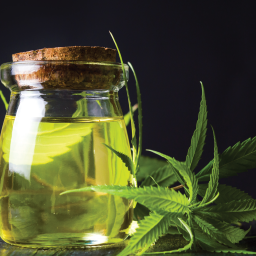Written by Tom Sheppard
In my first post, I talked about the research I did about marijuana and Parkinson’s. In my second post, I shared the story of my first trip to a dispensary. Now that I’ve had a chance to experiment with it, I’d like to share my results.
Did it work?
Not perfectly and not grandly, but yes it did.
Choosing which product to purchase wasn’t an easy decision as there are a lot of choices when it comes to treating insomnia.
After being educated by the budtender, I came home from the dispensary with sublingual drops of CBD-rich with a ratio of 8 CBD to 1 THC. (The ratio of CBD to THC is very important and may take some experimenting to get it right.) I was excited about my purchase. Considering that I have tried a number of supposedly sleep-inducing medications with no success, I was hopeful a natural plant-based substance could do the job.
Since I was diagnosed with Parkinson’s in 2013, I have averaged approximately five hours and twenty minutes of sleep per night. I thought if I could bump that average up to six hours, it would make a big difference. As of now, I’m tired much of the time due to lack of sleep and my exercise program.
The directions were clear: take before bedtime and start with one or two drops. I had read how getting the proper dosage is very important. The first night I was somewhat apprehensive, but I followed the directions hoping for a good night’s sleep. When I slept for six hours with no side effects that first night, I was thrilled. I didn’t experience a “hangover” effect the next morning either. I was optimistic.
Unfortunately, the six hours turned out to be the exception. Much to my disappointment, during the three weeks I used the drops, I slept less than normal. I moved the dosage up to 5/6 drops with no success. In this case, an increase in dosage didn’t help. I never felt any sort of effect (good or bad) from the drug.
So, I went shopping again. I went to a different dispensary this time, but it went pretty much the same as before. A nice young man listened to my story and immediately recommended that I stay with the same delivery method (sublingual drops) but change the ratio of CBD/ THC to 3:1 from the 8:1 I tried the first time. He thought this combination of CBD and TCH should give a better result.
I tried one drop the first night and slept for six and a half hours. Over the next week, I increased the dosage to three drops. As a result, I’ve been consistently getting thirty more minutes of sleep each night. When you’re used to sleeping just over five hours a night, an extra half hour feels meaningful. Even better, I’ve increased my sleep without experiencing any side effects.
DPF Note: We asked Dr. Kluger why does marijuana work well for some people and not for others. He said,
This is true for almost any therapy/medication. I do not think the variability of marijuana/cannabis products are any different than other medications we use for difficult symptoms like sleep, pain and anxiety. We often need to try a few medications to find something that works with acceptable side effects. – Benzi Kluger, Assistant Professor of Neurology and Psychiatry at the University of Colorado Denver
Then we asked him about the results he’s seen in his practice. He said,
I’ve found that cannabis products can definitely help some people with their sleep, anxiety, appetite, nausea and pain. These products frequently have fewer side effects than prescriptions.
If you’re interested in marijuana as a medicine, keep in mind that we’re all different and what works for one may not work for another. It’s a trial and error game and there are no guarantees. Also, people respond to it very differently so it’s always important to keep side effects in mind and weigh that against results.
My conclusion today, which may change tomorrow, is that the marijuana as medicine experiment has not been an overwhelming success. However, it’s been good enough that I will continue to use and experiment.
If you have a story to tell about using marijuana to increase your sleep or minimize your Parkinson’s symptoms, we’d love to hear about it. Simply leave us a comment and let us know.
For further learning
Marijuana and PD: What do we really know? Webinar by Dr. Benzi Kluger
Watch what happens when this Parkinson’s patient smokes marijuana
Cannabis use in people with Parkinson’s disease and Multiple Sclerosis: A web-based investigation.
Cannabinoids as novel anti-inflammatory drugs















